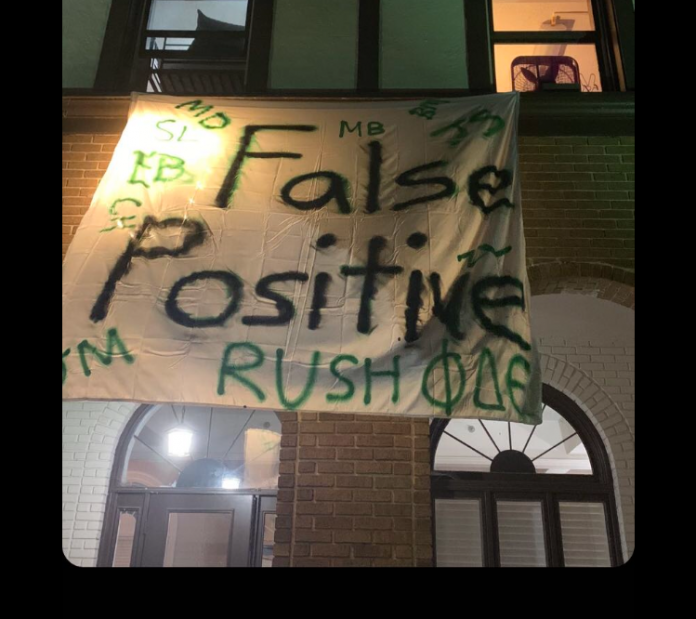
Phi Delta Theta fraternity members ended their two week quarantine today after an active member tested positive for COVID-19 on Sept. 25.
The student who tested positive for the coronavirus was placed in isolation and relocated to temporary campus housing until they tested negative. The remaining members of the fraternity were able to quarantine in their Greek residence with limited contact with other students.
After a three day incubation period following the COVID-19 exposure, two additional members in the house developed symptoms and were put into isolation. They both tested negative for the virus on Tuesday, Sept. 29 and Thursday, Oct.1, according to Justin Brinegar, President of Phi Delta Theta.
Hayden Leatherwood, risk manager of Phi Delta Theta, reported that during the two-week quarantine period active members are only permitted to leave their rooms to get meals, exercise or use the bathroom. Their quarantine ends Friday, Oct. 9 at the end of day, as they have not reported any additional positive cases.
As president, Brinegar serves as the mainline of communication between the Greek organization, their national affiliations, and the university. Greek leaders have been working closely with DePauw’s COVID-19 task force throughout the semester.
Brinegar is thankful that members of the fraternity have been cooperative throughout the two-week period, but he recognizes that morale is low within the organization.
“Everyone was aware of the guidelines and how [the] campus was going to be when they got here,’ Brinegar said, “but I think a lot of frustration has stemmed from how the university is handling things rather than how [the IFC] is handling things internally.”
The timing between the start of Phi Delta Theta’s quarantine on Sept. 25 and DePauw University’s recently relaxed restrictions (approved athletic practices, and socially distanced gatherings up to 25 people) may appear to correlate at first glance.
According to Julia Proctor, chair of the COVID-19 task force, the timing of these events indicates a “false trend.” She states that recent positive cases are isolated instances in which students were exposed during activities that took place off of university property.
